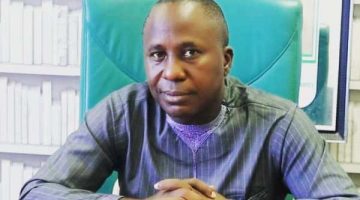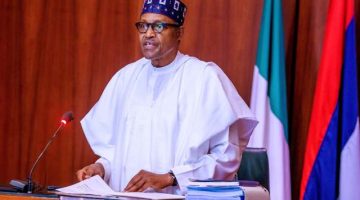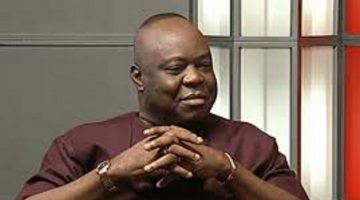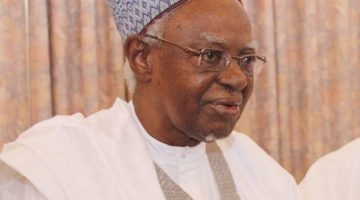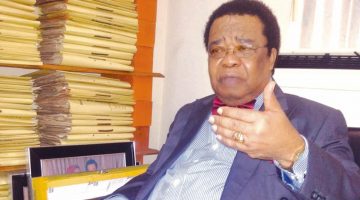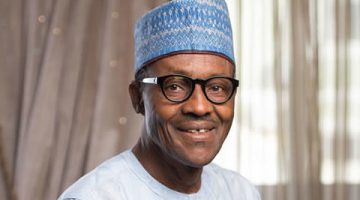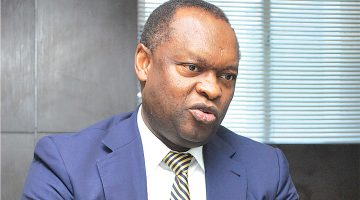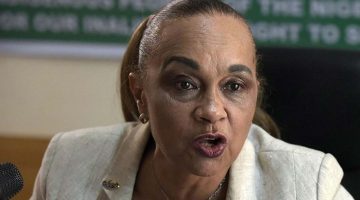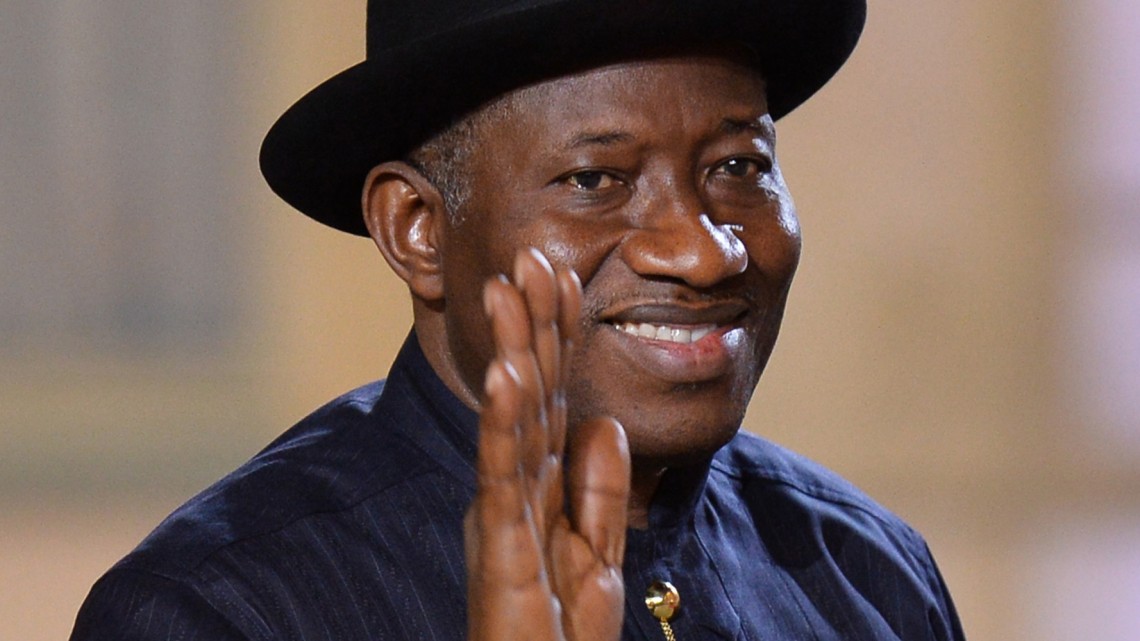LEKE BAIYEWU highlights some of President Goodluck Jonathan’s actions and comments that shook Nigeria during his six-year administration
President Goodluck Jonathan’s administration ends on Thursday – four days from now. He has been the President of Nigeria for about six years. His hope of ruling the country for another four years was dashed by Maj-Gen. Muhammadu Buhari (retd.) of the All Progressives Congress at the March 28 presidential election.
Those who closely watched the activities of the outgoing President have said his administration would be remembered for many things – the good, the bad and the ugly. Some of his actions and comments that would be remembered are:
Fuel subsidy removal
While Nigerians were celebrating the New Year on January 1, 2012, the Federal Government announced the removal of government subsidy on fuel. After the announcement, the pump price of Premium Motor Spirit (petrol) jumped from N65 to N141. The development sparked nationwide protests, with rallies held simultaneously in several parts of the country. The Nigeria Labour Congress and the Trade Union Congress declared workers’ strike nationwide.
However, two weeks after, the Federal Government rather than a reversal to the old N65 per litre price, announced a new price of N97 per litre.
Few weeks to the 2015 general election, the Federal Government slashed it by N10 and it became N87.
UNILAG to MAULAG
Anger and protest had greeted the decision by President Goodluck Jonathan on May 29, 2012, to rename the 50-year-old University of Lagos after the acclaimed winner of the June 12, 1993, presidential election, the late Chief Moshood Kashimawo Olawale Abiola. The protest lasted for about one year.
Jonathan renamed UNILAG ‘Moshood Abiola University, Lagos’ – after the late business mogul following a 14-year clamour for the recognition of Abiola’s place in the democratic journey of the country.
Few minutes after the President announced the renaming of the institution in his Democracy Day speech, students of the university trooped to the streets to protest against the new name, although they made it clear that they had nothing against the person of the late Abiola.
 The National President of the UNILAG Alumni Association, Prof. Olayide Abass; a former Vice Chancellor of the institution, Prof. Oye Ibidapo-Obe; all the workers’ unions, including the Academic Staff Union of Universities, faulted the renaming, which they described as “illegal, provocative, absolutely incongruous and antithetical to democratic norms.”
The National President of the UNILAG Alumni Association, Prof. Olayide Abass; a former Vice Chancellor of the institution, Prof. Oye Ibidapo-Obe; all the workers’ unions, including the Academic Staff Union of Universities, faulted the renaming, which they described as “illegal, provocative, absolutely incongruous and antithetical to democratic norms.”
Abass said the President did not have the power to change the name of the university, which, he said, was created by an Act of Parliament.
Also, Ibidapo-Obe, who said he almost died when the new name was announced, wondered why the President did not consult stakeholders before he made the ‘’totally unacceptable” decision.
The alumni association had dragged Jonathan and the Federal Government to a Federal High Court in Lagos, over the name change. Some individual members of the association, most especially lawyers, also approached different courts to seek a reversal of the name.
However, the President had argued, “It is just like declaring a state of emergency. There is no law that says you must first contact the Senate before changing the name. People may like it or not, but we acted within the law. You do not consult the Senate before changing the name of a university.”
Amid the protests, President Jonathan sent a bill to the National Assembly, asking it to effect the name change. The bill had passed through the first and second readings at the Senate when the court stopped the Federal Government from further action until the determination of the case before it.
‘I don’t give a damn’
When President Umaru Yar’Adua came into power, with Jonathan as the Vice-President, he declared his assets. The late President went an extra mile to declare it publicly — the first time a Nigerian president would do so. This act, observers said, confirmed Yar’Adua’s resolve to lead by example in forming a transparent and accountable government. Yar’Adua had earlier publicly declared his assets as the Governor of Katsina State — the first governor to do so in the country.
The Code of Conduct for Public Officers in the 1999 Constitution mandates government officials to declare their assets at the beginning and end of their stay in office.
President Jonathan, in the Presidential Media Chat broadcast on June 24, 2012 – two years after taking the baton of power following the death of Yar’Adua — said declaring his assets as the President was not an issue, since he had already declared his assets as Vice-President two years earlier.
He said in parts, “The issue of public declaration, I think, is playing to the gallery. You don’t need to publicly declare any asset. If I am somebody who wants to hide, it is what I tell you that you will even believe.
“I don’t give a damn about it, if you want to criticise me from here to heaven. When I was Vice-President, I told the then President — unfortunately he’s late — I said, ‘Look let us not start something just because we will play into the hands of some people and create another situation in the country.”
Controversial Brazil trip
As Boko Haram intensified its attacks on some parts of Kaduna State and Damaturu, the Yobe State capital, President Jonathan departed the country for Rio de Janeiro, Brazil, on June 19, 2012 to attend the United Nations’ Earth Summit.
The President left the country in company with his wife, Patience; Governors Ibrahim Shema and Seriake Dickson of Katsina and Bayelsa states respectively and a horde of others.
While President Jonathan was away, security forces were working to contain the crisis in Kaduna State, where the death toll in multiple bombings had risen to 74. Officials of the Red Cross also said 140 victims of the attacks had been taken to hospitals for treatment as of that day.
While the public condemnation of the trip — especially its timing — was on, the then Minister of Information, Labaran Maku, had said the President could rule the country from anywhere in the world, arguing that his absence at the height of the crisis did not amount to negligence as he was on an official assignment to Rio De Janeiro.
President Jonathan, during a live presidential media chat after the trip, stated that those who argued that he should not have embarked on the trip were ignorant.
He said in parts, “I have no regrets about going to Brazil. Nigerians who were worried that I travelled, got worried out of ignorance. One of the tactics of terrorists is to strangle government. If they heard that the President and the Vice-President wanted to travel but couldn’t do so because they struck, they would celebrate it.”
Most criticised president
On August 27, 2012, at the opening of the 52nd Annual General meeting of the Nigerian Bar Association at the International Conference Centre in Abuja, President Jonathan said he was the most criticised President in the whole world and vowed to become the most praised before he left office. He, however, absolved himself of any blame for the country’s problems for which, he said, he had become an object of criticism.
Jonathan said, “I think I am the most criticised President in the whole world, but I want to tell this audience that before I leave, I will be the most praised President.”
One-term agreement
President Jonathan had been accused by some leaders of the PDP of reaching an agreement with governors of the party, prior to the 2011 presidential election, to spend only one term in office. Most prominent among Jonathan’s accusers were former President Olusegun Obasanjo, and Governor of Niger State and Chairman of the Northern Governors’ Forum, Babangida Aliyu. A Second Republic lawmaker and Convener of the Coalition of Northern Politicians, Academics, Professionals and Businessmen, Dr. Junaidu Mohammed — among several other northerners, mostly governors at that period — had also made the claim.
While interacting with Nigerian diplomats working with the United Nations Economic Commission for Africa, and the African Union, in Addis Ababa, Ethiopia, on January 31, 2011, a report also quoted the President as saying he had no ambition of staying in office beyond 2015.
He reportedly said, “Four years is enough for anyone in power to make significant improvement and if I can’t improve on power within this period, it then means I cannot do anything even if I am there for the next four years.”
“I would have loved that the Nigerians in the Diaspora vote this year but to be frank with you, that is going to be difficult now. Presently, the law does not allow for voting outside Nigeria and so this year Nigerians in the Diaspora will not vote but I will work towards it by 2015, even though I will not be running for election.”
In the September 2013 edition of the presidential media chat, Jonathan however said, “There was no agreement with anybody that I will serve for only one term. If I had signed any agreement with anybody, they would have shown you the agreement.”
Battle with Amaechi
For the most part of President Jonathan’s first term, he, together with his wife, Patient Jonathan, had a long battle with Governor Rotimi Amaechi of Rivers State (the First Lady’s home state). For over two years, Amaechi and the First lady engaged themselves in verbal warfare, making accusations and counter-accusations. Although President Jonathan was said to have hardly made provocative comments on Amaechi, those who followed the issue closely alleged that government agencies were used to clamp down on the Rivers State governor.
They cited the example of when the Federal Government banned Amaechi’s official plane for “operating illegally in the country.”
The Nigerian Airspace Management Agency, on April 26, 2013, temporarily grounded the Bombardier–BD700 Global Express aircraft in Akure, Ondo State, over the pilot’s alleged inability to provide the manifest of the plane. The next day, the Nigeria Civil Aviation Authority announced that the aircraft had been banned from flying in Nigeria.
Again on June 8, 2014, the NAMA grounded an aircraft at the Aminu Kano International Airport, Kano, which was chartered by Amaechi to pay a condolence visit to Governor Rabiu Kwankwaso on the death of the Emir of Kano, Alhaji Ado Bayero.
Officials of NAMA allegedly said grounding of the aircraft was on “orders from above.”
Amaechi also had a long battle with the then Commissioner of Police in Rivers, Mr. Joseph Mbu, until the police boss was eventually redeployed from the state.
Amaechi eventually left the PDP.
Fight with Sanusi
Former Governor of the Central Bank of Nigeria, Lamido Sanusi, run into trouble with President Jonathan when he raised the alarm that $49bn was missing from the Federal Government’s account. Now the Emir of Kano and referred to as Muhammadu Sanusi II, the then governor of Nigeria’s apex bank had told the President that the money, which should be revenue generated by the Nigerian National Petroleum Corporation, was missing from government coffers.
A presidential committee was set up to reconcile the account, of which the Minister of Finance and Coordinating Minister of the Economy, Dr. Ngozi Okonjo-Iweala, who was a member, had argued that only $10.8bn was the amount unaccounted for.
Sanusi later said the unremitted fund was $12bn. He later made another U-turn when he told an investigative committee at the National Assembly that the unremitted revenue by the corporation was $20bn.
In May 2014, the Federal Government announced the appointment of PriceWaterHouseCoopers to carry out a forensic audit of the NNPC’s accounts.
In the heat of the debate, President Jonathan had suspended Sanusi as CBN governor on February 20, 2014, alleging that he had found out that Sanusi’s tenure was characterised by acts of financial recklessness and misconduct which he said were inconsistent with his administration’s vision. Sanusi’s suspension, which was close to his retirement, was seen by many as vindictive. The President, however, said his suspension had nothing to do with the money.
The audit report of PwC, which was released in February 2015, indicted the NNPC and the Nigerian Petroleum Development Company, its subsidiary. The auditors asked both organisations to refund to the Federation Account “a minimum of $1.48bn,” representing about N274.54bn at the Central Bank of Nigeria’s inter-bank exchange rate of N185.50 to the dollar.
Not done, Sanusi, during an interview with Christiane Amanpour on Cable News Network in March, insisted that the audit report indicated that $18bn, and not $1.48bn, was missing. He said the issues surrounding the missing $20bn oil money had not been adequately addressed by the Federal Government.
‘America should know’
One of President Jonathan’s most criticised comments was his reaction to a question on the ‘missing’ $20bn during the May 2014 edition of the presidential media chat.
He said in part, “Twenty billion dollars is a lot of money. If you steal $20bn today, America will know. It is their money. Where will you hide the money? Even (Aliko) Dangote that is celebrated as the richest man in Africa today cannot produce such amount of money.”
Cold war with Obasanjo
Not long after Jonathan became President, his relationship with erstwhile President Olusegun Obasanjo became sour. Ever since then, it has been a cold war between the political godfather and his godson.
Obasanjo had criticised Jonathan, who many people believe he helped put in power, over the incumbent’s administration of the country and the management of the Peoples Democratic Party. He had written letters and books on issues bordering on the wrongs of the incumbent President.
The ex-President seized opportunities to criticise Jonathan on different issues at different occasions, until he almost became Jonathan’s biggest critic.
The ex-President would later resign his chairmanship of PDP’s Board of Trustees and, soon after, publicly drop his party’s membership card. Thereafter, Obasanjo endorsed Buhari of the All Progressives Congress and publicly campaigned for his election to unseat Jonathan.
Agriculture
One major area of commendation for Jonathan’s government has been agriculture. Farmers and other stakeholders in the agricultural sector have hailed the efforts of his administration in blocking leakages in farmers’ access to fertilisers and provision of information to farmers by making available handsets to farmers across the country.
According to several industry observers, farmers now get their fertilisers directly, without a middle man and, in some cases, free of charge.
“If not for his agricultural transformation policies, we wouldn’t have ventured into investments in assets. But today, we are indulging in mechanised agriculture and we have our milling factory on the way. A lot of our clients, colleagues and competitors can testify to this. He has done exceptionally well in agriculture. It is not about politics; it is the truth,” an agriculturalist, Tunji Owoeye, had told SUNDAY PUNCH.
‘Boko Haram has infiltrated my government’
Nigerians were shocked by their President when he admitted on January 8, 2012 that Boko Haram had infiltrated his government. He claimed that some members of the group, which had claimed responsibility for the killings in parts of the North, were in the executive, legislative and judiciary arms of government, as well as the police and Armed Forces.
At an inter-denominational service to mark the 2012 Armed Forces Remembrance Day, Jonathan said the situation had made it more difficult to combat Boko Haram. He added that the security situation in the country was worse than the Nigerian Civil War experience.
President Jonathan, later in May 2014, denied that Boko Haram had infiltrated his government. But, he said the ongoing prosecution of Senator Mohammed Ndume on allegations of collaboration with Boko Haram had confirmed his earlier claim.
He said, “I never said that Boko Haram infiltrated my cabinet, what I said was my government and in saying government, we have three arms which include the legislature, judiciary and executive arms.
“You will agree with me to a large extent because a senator was being prosecuted at a time for having a link with Boko Haram. I used the word ‘government’ and never mentioned cabinet.”
Amnesty for Boko Haram
The Jonathan-led administration, in May 2014, declared amnesty for members of Boko Haram, which generated a hot national debate.
The Minister of Youth Development, Mr. Boni Haruna, who made the announcement, said it was part of the President’s youth-friendly programmes and policies, adding that series of integration programmes have been lined up for members of the sect who would surrender their arms and embrace peace.
Critics of the programme wondered why a terrorist group, which was threatening Nigeria’s national integrity, could be granted amnesty. They had differentiated the sect from Nigeria Delta militants, who were fighting for the development of their region, which they considered as legitimate. The President later denied declaring amnesty for the terrorists or having negotiations with them.
Chibok girls
Although the Boko Haram insurgency began before Jonathan became President, the sect spread its tentacles and intensified its terrorist activities under his administration. The April 14, 2014 abduction of over 200 schoolgirls from Government Secondary School, Chibok in Borno State was widely seen as a major challenge to his administration. One year after, the girls have yet to be rescued.
Although the sect had abducted hundreds of women and children, most of whom were taken to Sambisa Forest, the case of the Chibok girls attracted global attention to the spate of terrorism in the north-eastern part of the country and how the Jonathan-led administration had been handling it.
President Jonathan in an opinion he wrote, which was published by the Washington Post on June 27, 2014, said he had been silent on efforts being made to rescue the schoolgirls because he did not want to compromise ongoing discreet investigations.
After 276 days of the Chibok girls’ abduction, President Jonathan on January 15 paid a surprise visit to Maiduguri, Borno State, one of the three north-eastern states worst hit by Boko Haram insurgency. Critics chided the President for continuing his presidential campaign without visiting the area and parents of the girls.
After the elections earlier scheduled for February 14 and 28 were shifted by six weeks to March 28 and April 11, the Federal Government began what many people described as last-minute efforts to crush Boko Haram and rescue the Chibok girls.
The military liberated almost all the captured cities and towns in Borno, Yobe and Adamawa states. After the 2015 elections, security forces also rescued over 700 women and children – excluding the Chibok girls — from Sambisa forest.
NGF crisis
After months of intrigues and political permutations among the 36 state governors in the country, Governor Amaechi was re-elected as the Chairman of the Nigerian Governors’ Forum for a second term on May 24, 2013.
The election, which was witnessed by 35 of the 36 governors, saw Amaechi defeating his only rival, Governor Jonah Jang of Plateau State, by 19 votes to 16. However, some of the governors, led by the Chairman of the PDP Governors Forum, Godswill Akpabio of Akwa Ibom State, later rejected the result. There, Jang declared himself the winner of the poll.
Amaechi won the NGF chairmanship poll with more votes, President Jonathan endorsed Jang.
The President, who had consistently denied any link to the intrigues that preceded the NGF poll or his backing of any candidate, had in his address recognised Jang as “the chairman of the NGF” at the PDP family dinner in Abuja, on May 31, 2013.
The Plateau State governor later led 12 governors and two deputy governors to a meeting with the President, where a source said Jonathan formally recognised Jang as the winner of the election and pledged to do all in his power to ensure a smooth tenure for Jang. The President’s recognition of Jang placed him under public criticism.
Oil pipeline protection contract for militia groups
Another matter that has generated public criticism of the outgoing administration is the award of petroleum pipeline protection contracts to ex-militants and militia groups.
For instance, a Wall Street Journal report in August 2012 focused on the yearly payment of about N5.6bn to former Niger Delta warlords for guarding the oil pipelines in the restive region. The report gave a breakdown of the militants involved in the contracts as ‘General’ Government ‘Tompolo’ Ekpumopolo, N3.6bn; Mujahid Dokubo-Asari, 1.44bn; ‘General’ Ateke Tom, N560m; and ‘General’ Ebikabowei ‘Boyloaf’ Victor Ben, N560m.
The Presidency, however, defended the contract, saying it is in the interest of the nation. The Special Assistant to President on Public Affairs, Dr. Doyin Okupe, said Nigeria had benefited immensely from the exercise. He added that the volume of crude oil being produced in the country had increased tremendously since the exercise commenced.
“Since this exercise began, crude oil production has jumped from 1.8mbpd to 2.6mbpd. That is an increment of over $700m income per day to the government. So, when you compare what was paid to get this benefit, it pales into insignificance,” Okupe claimed.
Shortly before the 2015 polls, the news broke that the Federal Government had awarded a N9bn-worth oil pipeline security contract to some ex-militants in the Niger Delta and the Oodu’a Peoples Congress, a Yoruba militia group.
Concession of defeat
While the Independent National Electoral Commission was still releasing the results of the April 11 presidential poll, with the results announced so far indicating that Buhari had won the poll, President Jonathan called his opponent to concede defeat and to congratulate him.
The act made the outgoing President a hero to some Nigerians. Jonathan has since been hailed globally for what he did. According to some analysts, Nigeria would have burnt, if Jonathan had not conceded defeat. Although some critics insisted that it was expected of him to concede defeat once he had lost the election, it seems more Nigerians, who saw concession of defeat as uncommon in this clime, have thought otherwise.
Copyright PUNCH.


